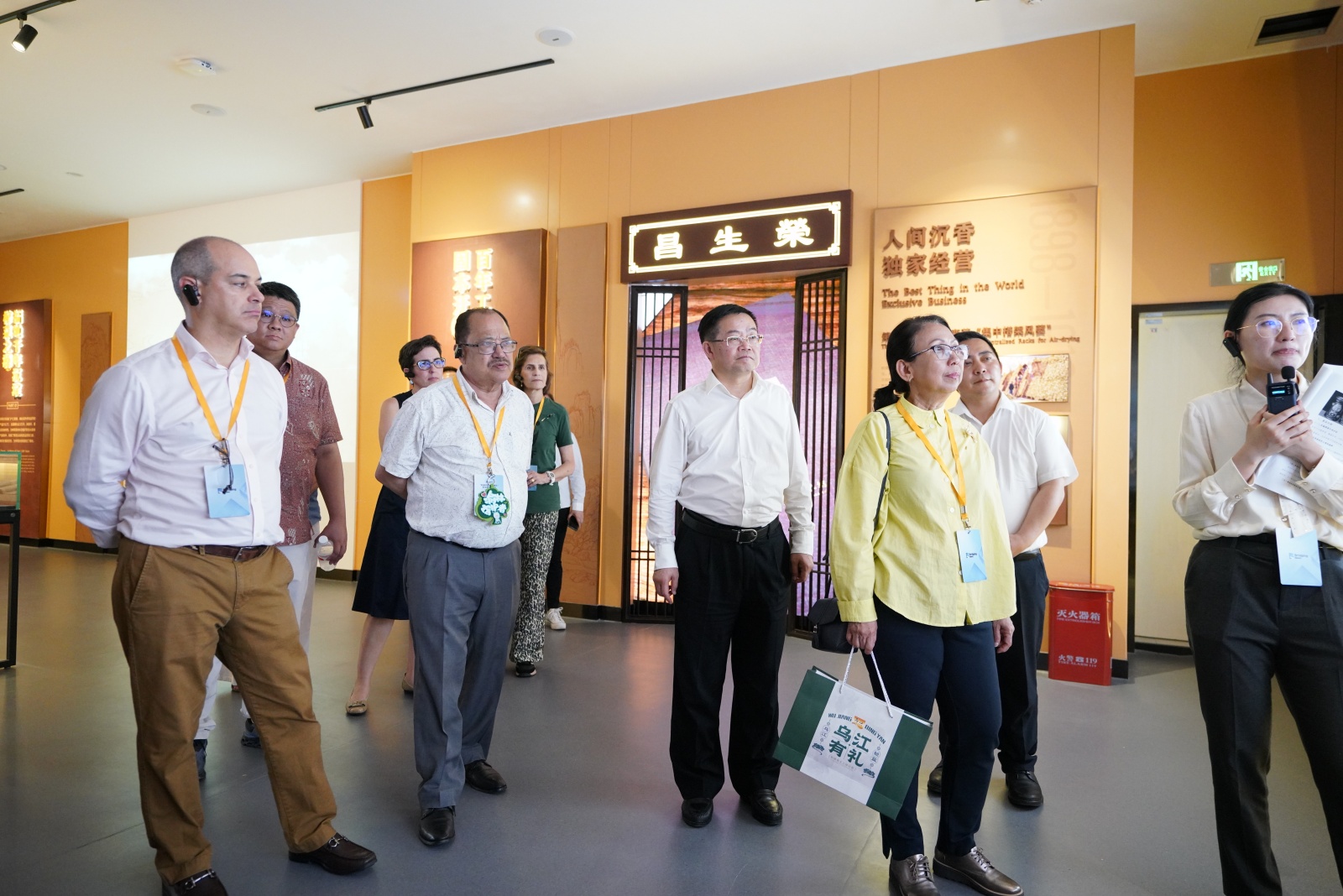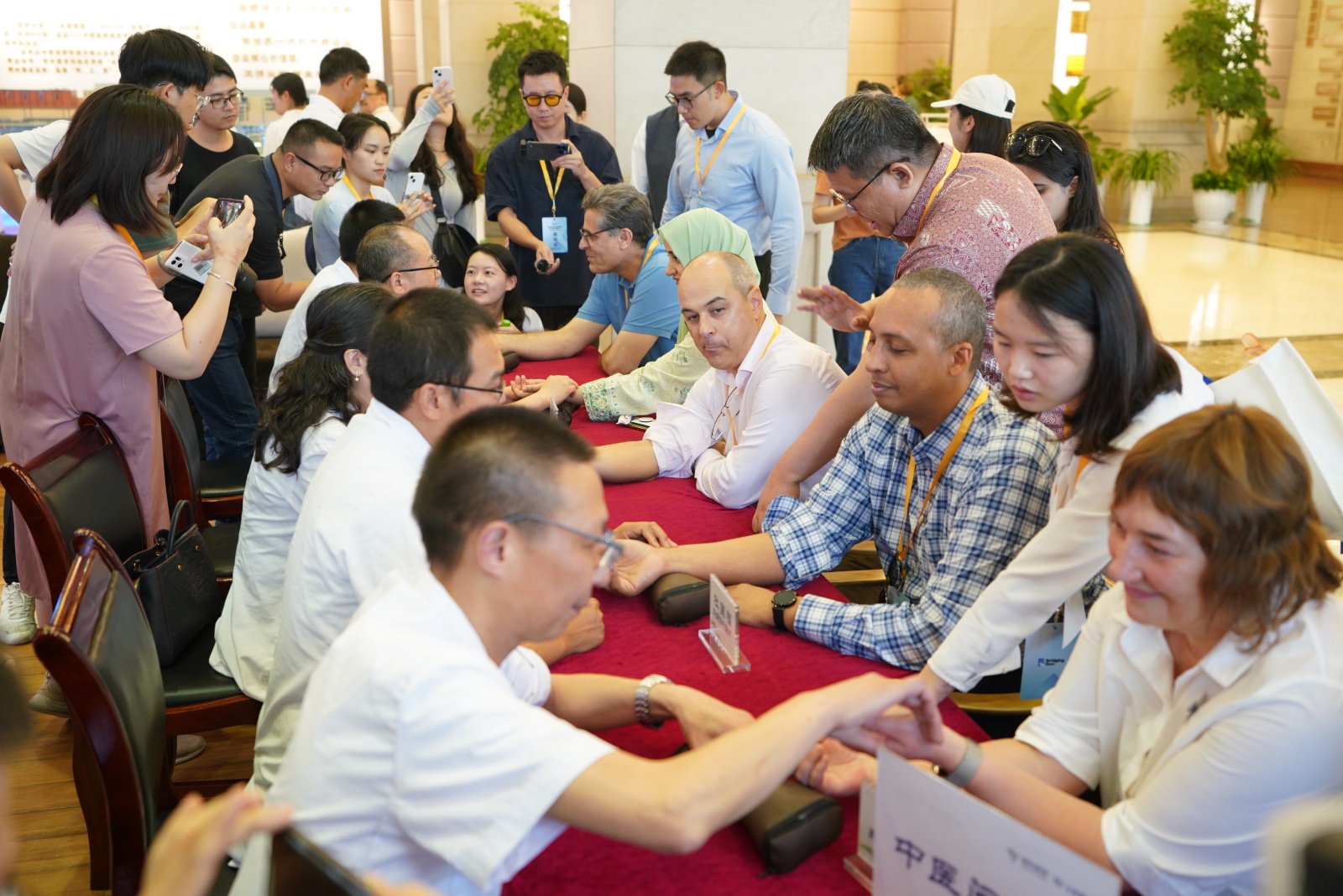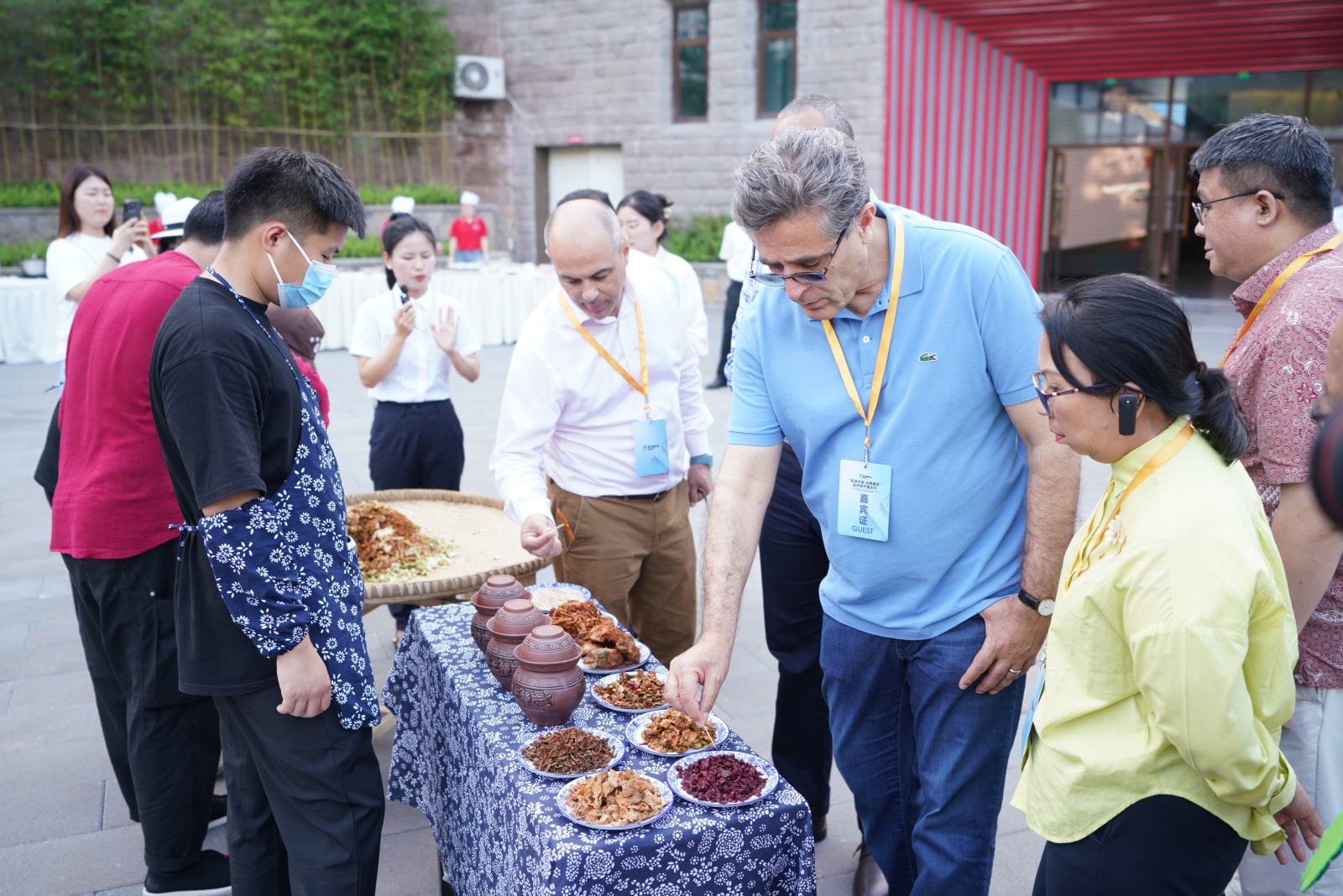 Bridging News
Bridging News
Diplomatic Envoys Celebrate Chongqing's Innovations and Heritage
Chongqing - On May 17, as part of the "China, An Opportunity: Chongqing Brands Global Promotion" Diplomatic Envoys' Trip to Chongqing, diplomatic envoys visited Chongqing's Liangping and Fuling districts to gain an in-depth understanding of local agricultural innovation, ecological protection, and historical culture.

Diplomatic envoys visited Chongqing's Liangping and Fuling districts. (Photo/Zhao Guogan)
The envoys' first stop was the "China Liangping Pomelo Sea," the main production base for Liangping pomelos and a model for rural revitalization. Renowned as a signature agricultural product, Liangping pomelos have earned the area the title "The Hometown of Famous Chinese Pomelos." The region has successfully integrated agriculture with tourism through modern agricultural techniques and comprehensive market strategies, attracting numerous visitors annually for the pomelo blossom season and pomelo picking activities. The envoys also sampled pomelo wine. Jelena Nikolic, Minister Counsellor at the Embassy of Serbia in China, remarked, "This wine is truly delicious, even more so than I expected. I also tried a stronger one, but this one is my favorite. The pomelo wine left a deep impression on me."
Next, the envoys visited Shuanggui Lake National Wetland Park, one of Chongqing's largest wetlands, covering a total area of 349.97 hectares, with 190.76 hectares of wetland. Shuanggui Lake is known for its advanced ecological management practices and biodiversity conservation, serving as a model for achieving ecological, social, and economic benefits. The park's biodiversity monitoring station and micro-wetland ecological restoration projects showcase the district's outstanding achievements in ecological protection and nature education. Stephan Grabherr, Minister at the Embassy of Germany in China, emphasized the benefits of wetlands for civilization and the planet. "I think wetland conservation is very important, and therefore, we congratulate Chongqing for its efforts in this regard. Germany and China cooperate on climate protection. We will establish an action plan for the circular economy and also cooperate on the international agreement regarding the plastic ban, as this is very important for our environmental protection."
Following this, the envoys explored the Shuanggui Rural Scenic Area, where they experienced the making of Liangping woodblock prints. Liangping woodblock prints, recognized as China's national intangible cultural heritage, display the profound heritage of Chinese culture through their unique artistic style and traditional craftsmanship. Marium Mahmood, Wife of the Ambassador of Pakistan to China, expressed her admiration for the woodblock prints. "We have a similar technique in Pakistan, but we place the stamps upside down on cloth or paper. So this is a new technique for me to learn."
In the afternoon, the envoys arrived in Fuling district. They visited the Taiji Group Chongqing Fuling Pharmaceutical Factory, known for its innovations and contributions to Traditional Chinese Medicine manufacturing. There, they experienced Traditional Chinese Medicine consultations at the Taiji Group. Subsequently, they visited Wankai New Material Co., Ltd., an important industrial enterprise in Fuling specializing in producing and researching polymer materials.

Envoys experienced Traditional Chinese Medicine consultations. (Photo/Zhao Guogan)
The envoys then toured Chongqing Baiheliang Underwater Museum in Fuling, the world's first underwater heritage museum accessible without diving. Baiheliang is famous not only for its rich historical inscriptions but also for recording 1,200 years of hydrological changes, providing invaluable data for studying the hydrological history of the Yangtze River. As China's Water Education Base and Science Education Base, the museum plays a crucial role in both education and conservation. Stephan Grabherr expressed his appreciation for China's efforts to preserve historical and cultural heritage by constructing the Baiheliang Underwater Museum. Michael Rene Campbell Hooker, Ambassador of Nicaragua to China, stated, "China's efforts to preserve its history and ancestral heritage are remarkable. We support China in establishing this museum that records the intangible cultural heritage of the Chinese people."
Finally, the envoys visited the Museum of Historical Memory of Fuling Zhacai, which preserves the traditional craftsmanship of zhacai (pickles) production. Through various exhibitions and interactive experiences, envoys gained a deep understanding of the history and cultural value of this local specialty food. The envoys sampled various unique dishes featuring zhacai, such as zhacai burgers, zhacai pizza, and zhacai coffee, which blend flavors from different countries.

Envoys tasted Fuling zhacai. (Photo/Zhao Guogan)
This visit not only deepened the envoys' understanding of Chongqing's agricultural innovation, ecological protection, and cultural heritage but also laid a solid foundation for future international cooperation and exchange. The trip highlighted Chongqing's proactive efforts and significant achievements in preserving the ecological environment and cultural heritage.
(Li Tao, Han Bing, Dong Hanying, and Han Xi, as interns, also contributed to this report.)
 Related Stories
Related Stories